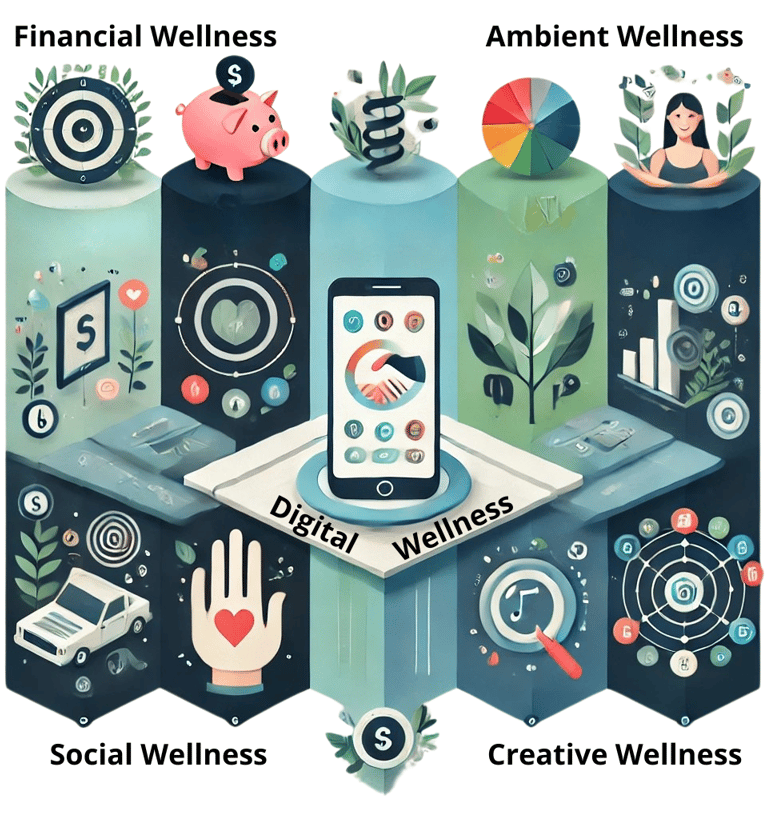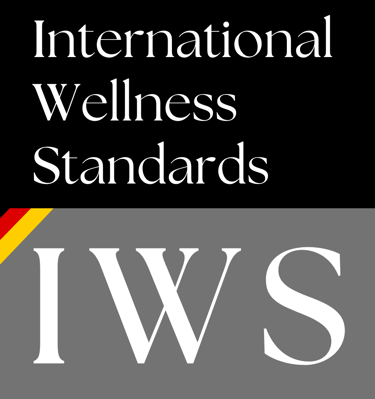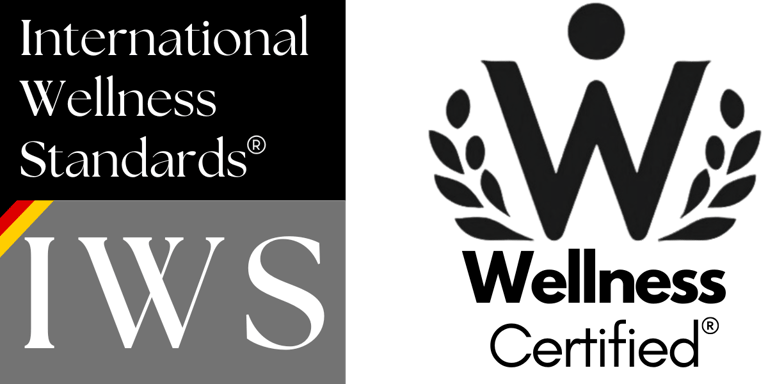
What if wellness is much more?
When we think of "wellness," it's common to imagine a lifestyle based on healthy eating, exercise, meditation, and self-care. However, what if the concept of wellness were much broader than we typically consider? Wellness shouldn't be limited only to the physical and mental; it could encompass dimensions that profoundly impact our quality of life but are rarely discussed in this context.
OPINION
5/8/20242 min read
What if wellness is much more?
When we think of "wellness," it's common to imagine a lifestyle based on healthy eating, exercise, meditation, and self-care. However, what if the concept of wellness were much broader than we typically consider? Wellness shouldn't be limited only to the physical and mental; it could encompass dimensions that profoundly impact our quality of life but are rarely discussed in this context.
1. Financial well-being: financial peace of mind is also health
Financial stress can be one of the leading causes of anxiety and worry in people's lives. A more holistic approach to wellness should include financial education, responsible money management, and strategies to achieve financial stability. Feeling in control of personal finances directly impacts emotional and mental well-being.
2. Digital Wellness: Balance in the Age of Hyperconnectivity
We live in a world where technology is omnipresent, but we rarely stop to assess its impact on our health. Digital wellness involves setting healthy boundaries with screens, cultivating mindful content consumption, and fostering a balanced relationship with technology. A "digital detox" and tech hygiene are key elements of holistic well-being.
3. Social Wellness: The Importance of Human Connections
Individualism has dominated many self-care narratives, but human relationships are essential for well-being. Having support networks, fostering empathy, and participating in active communities all contribute to a more fulfilling life. Authentic wellness includes the ability to nurture and maintain meaningful relationships.
4. Ambient Wellness: The Impact of Our Environment on Our Health
The space where we live and work directly influences our mood and health. A tidy environment, with natural light, plants, and clean air, can improve our energy and concentration. Furthermore, sustainability is part of well-being: knowing that our actions contribute to a healthier planet also generates emotional well-being.
5. Creative Wellness: Expression as a Health Tool
Creativity is an often overlooked source of well-being. Music, painting, writing, and other forms of artistic expression can serve as avenues to channel emotions, reduce stress, and foster personal growth. A revolutionary approach to wellness must include spaces for creativity and personal exploration.
6. Purposeful Wellness: Living with Intention
Feeling that our lives have meaning is fundamental to deep and lasting well-being. Exploring our values, setting goals aligned with our purpose, and finding ways to contribute to the world helps us feel more fulfilled. Wellness should not only focus on "feeling good," but also on "living with meaning."
Let's expand the conversation about wellness
It's time to stop seeing wellness as a set of isolated practices and start considering it as a comprehensive wellness ecosystem. It's not just about eating well and exercising, but about cultivating a balanced life in all aspects: financial, digital, social, environmental, creative, and purposeful.
Let's revolutionize the concept of wellness. Not just to feel better, but to live more fully in all dimensions of our existence.


Highlights
Ensuring excellence in wellness facility standards.
info@wellnesscertified.org
© 2024. All rights reserved.




